80–200 kg/h Chicken Feed Pellet Line Setup and Price
The production line has a capacity range of 80–200 kg per hour, depending on the model of the pellet machine.
In just one hour of operation, it can produce enough feed for about 500 chickens, based on an estimated daily intake of 150 grams per bird.
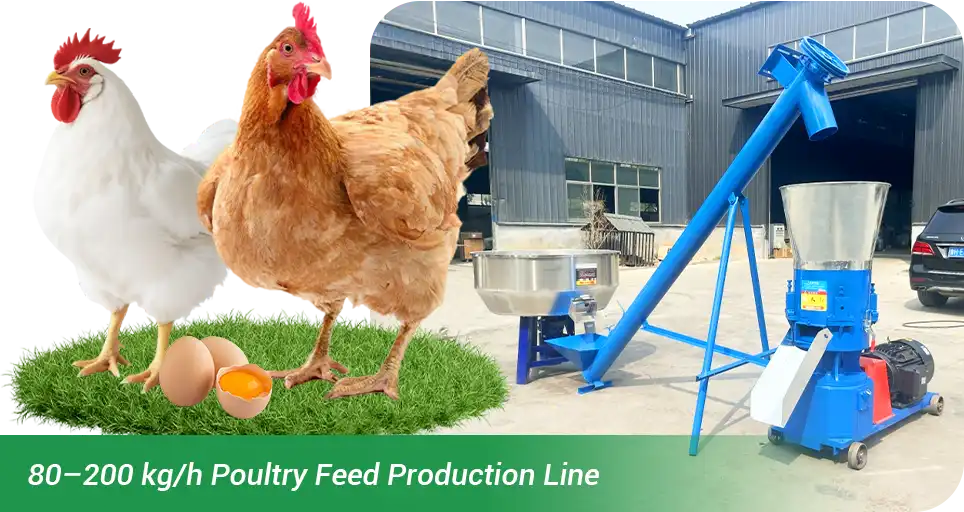
The complete line includes a feed grinder (optional), mixer, screw conveyor, and pellet machine, enabling a continuous process from raw material preparation to pellet formation.
Production Process
Crushing or pre-mixing raw materials → Mixing in the feed mixer → Lifting by screw conveyor → Pelletizing in the pellet machine → Cooling the finished pellets
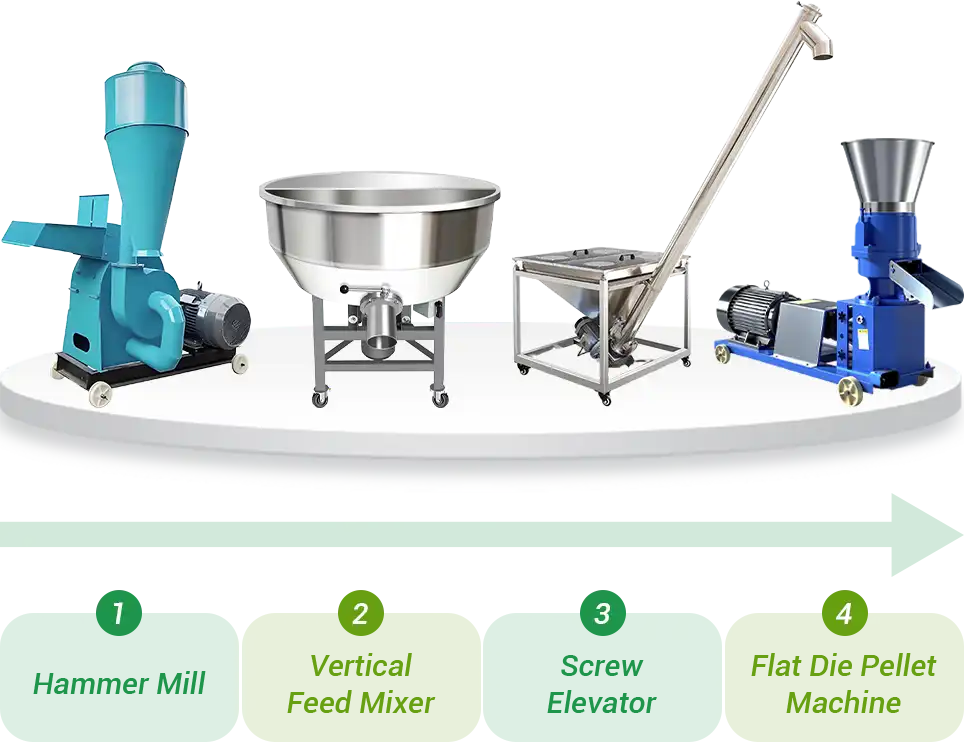
Vertical feed mixer for sale
The machine effectively solves problems such as time-consuming manual mixing, material separation, and uneven nutrient distribution.
Its internal spiral blades lift the materials from the bottom to the top, allowing them to fall back by gravity. This continuous circulation ensures thorough and uniform mixing.
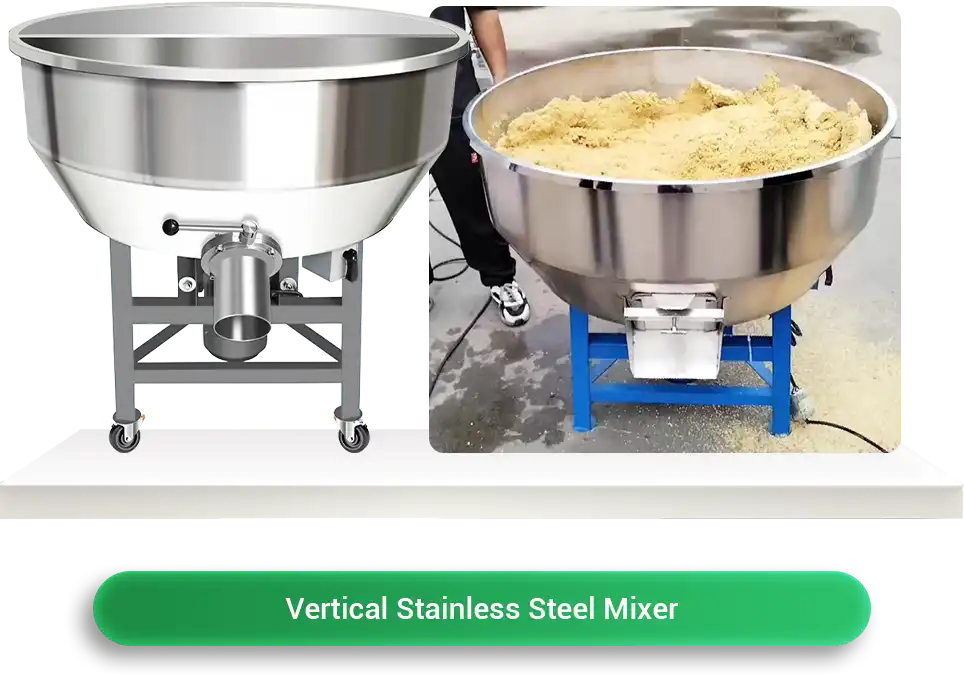
The mixer quickly blends feed ingredients like cornmeal, soybean meal, wheat bran, and vitamins in just a few minutes. It helps balance nutrients and improves feed efficiency.
Compact and easy to move with wheels at the bottom, it fits well on farms, in small workshops, or home feed rooms.
Parameters and Price
| Model | Each stirring (kg) | Volume (L) | Host power (kw) |
| 30 | 35 | 58 | 3 |
| 50 | 70 | 130 | 3 |
| 120 | 120 | 210 | 3 |
| 150 | 180 | 280 | 3 |
| 200 | 230 | 360 | 3 |
Price from $ 340 , Get a Quote!
Video Demo
Screw conveyor for sale
The screw conveyor quickly and evenly feeds the mixed materials into the pellet machine, eliminating the inefficiency and uneven feeding of manual loading.
Its fully enclosed structure prevents spillage and dust, keeping the working area clean and safe.
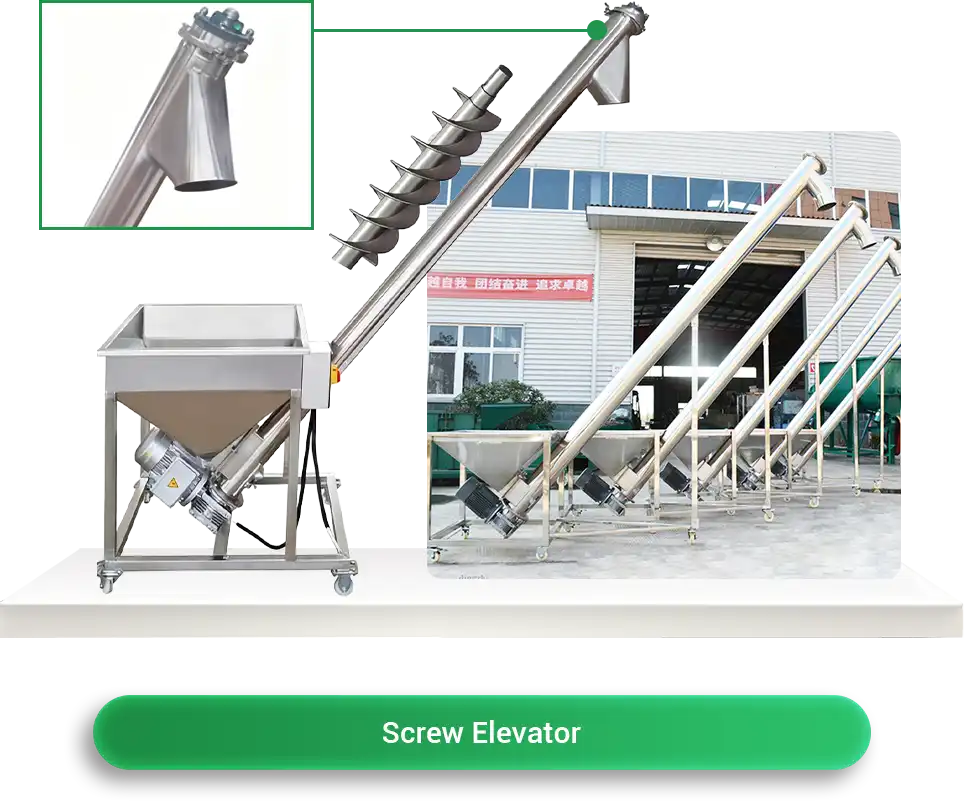
Built from high-quality carbon steel or stainless steel, the conveyor runs smoothly with low noise and is easy to clean and maintain.
The screw length, diameter, and discharge height can be customized to meet different production needs.
Starting Price from $ 320 ,Order now!
Video Demo
Chicken feed pellet machine for sale
Feeding powder feed often causes dust and waste. Mixing it by hand takes time and effort, and uneven blending can affect feed intake and nutrient absorption. If this sounds familiar, try switching to pellet feed.
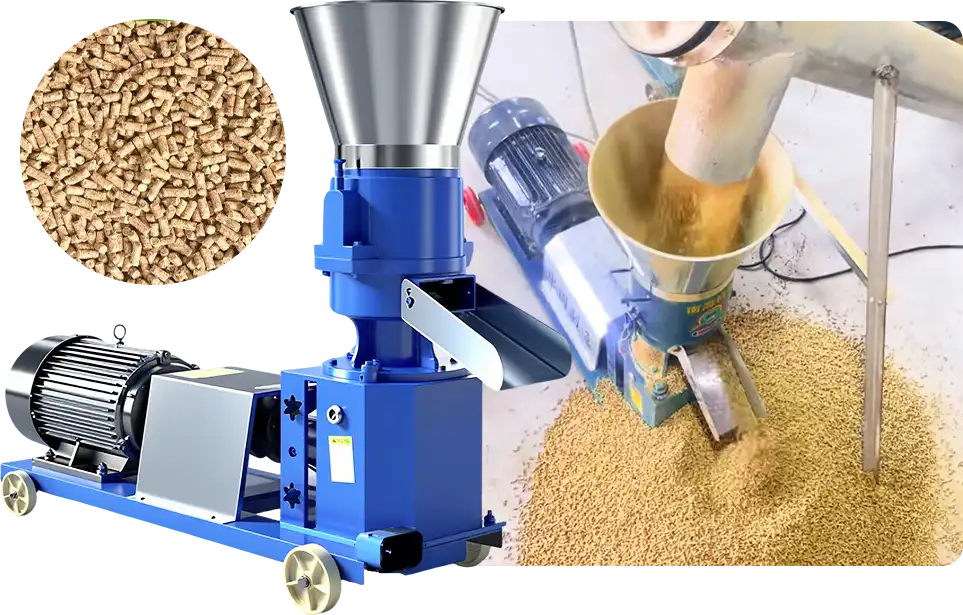
During pelletizing, the crushed materials are pressed and heated by friction, which helps sterilize the feed and gelatinize starch. This improves its taste, digestibility, and nutrient use.
Compared with powder feed, pellets are also easier to store and feed every day.
Parameters and Price
| Model | Power (kw) | Capacity (kg/h) | Roller |
| KD-125 | 4.5 | 60-100 | 2 |
| KD-150 | 4.5 | 80-150 | 2 |
| KD-160 | 4.5 | 130-180 | 3 |
| KD-210 | 7.5 | 150-200 | 2 |
Factory Price from $ 340 ,Contact us!
Video Demo
Equipment Advantages
- Adjustable pellet size with 2.5–8 mm dies
- Compact and easy to operate by one person
- Strong copper motor with low noise
- Works with electric, diesel, or gasoline engines
Customer Case
Customized Chicken Feed Pellet Line
This production line is mainly used for on-farm chicken feed processing, with raw materials such as crushed corn, wheat bran, soybeans, and feed additives.
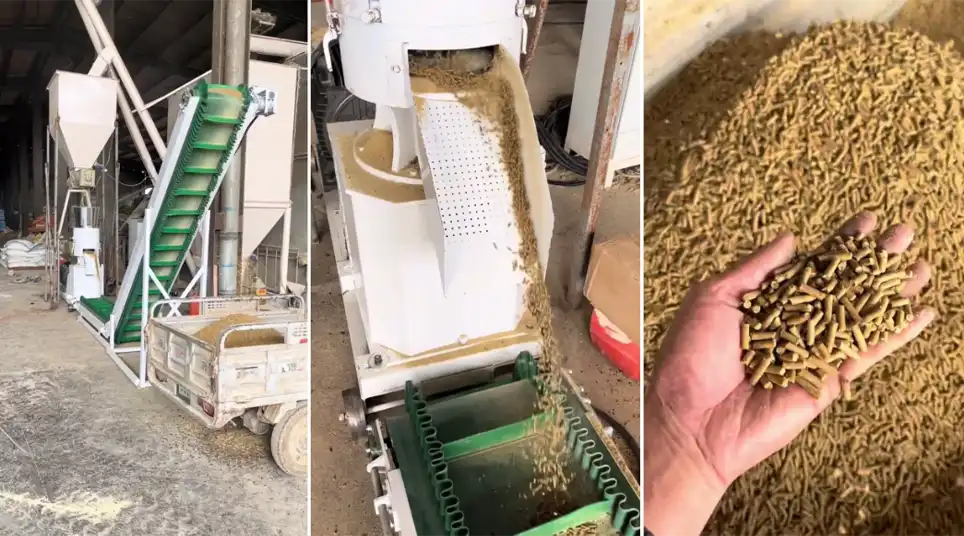
The line has a simple structure and compact layout, consisting mainly of a raw material bin, feeding system, and a KD-160 pellet machine.
After natural cooling, the finished pellets can be fed directly to the chickens.
Small Feed Processing Site in Uganda
Using low-cost local materials, the user makes chicken feed pellets and sells them to nearby farms for stable profit.
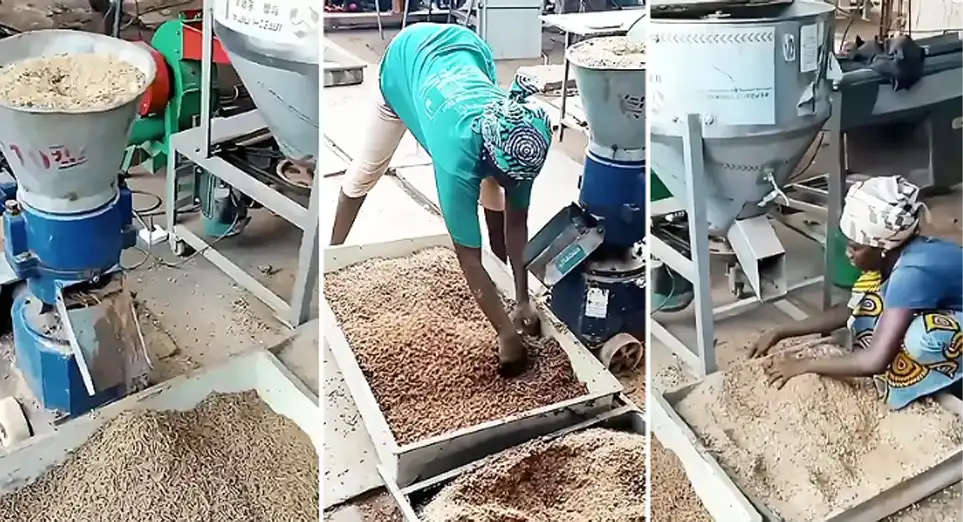
The line features a stainless steel mixer and a KD-210 pellet machine with about 200 kg/h capacity and steady performance.
After production began, the pellets were uniform, palatable, and well received by local farmers, bringing many repeat customers.
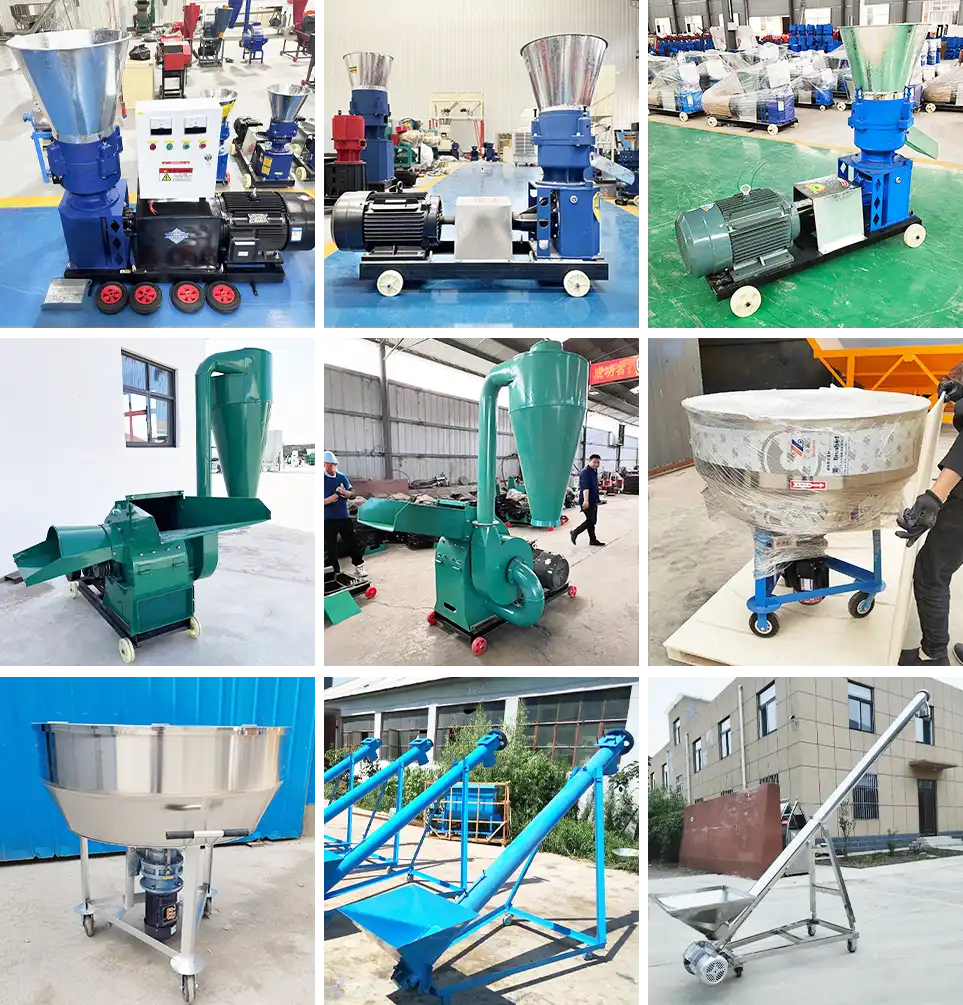
The 80–200 kg/h chicken feed pellet line is perfect for home farms and small to medium-sized poultry operations.It allows you to adjust feed formulas and pellet sizes for chicks, growers, and layers at different stages.
If you plan to expand production later, check the 200–500 kg/h Poultry Feed Production Line Setup & Price for a higher output model.
To explore various options, you can check out our Top 5 Poultry Feed Production Line Solutions.
Contact us today for your customized solution and quote.

 Online Contact
Online Contact Send Message
Send Message
Need Some Help?
Contact us quickly and we will reply you within 24 hours. We will not disclose your information.